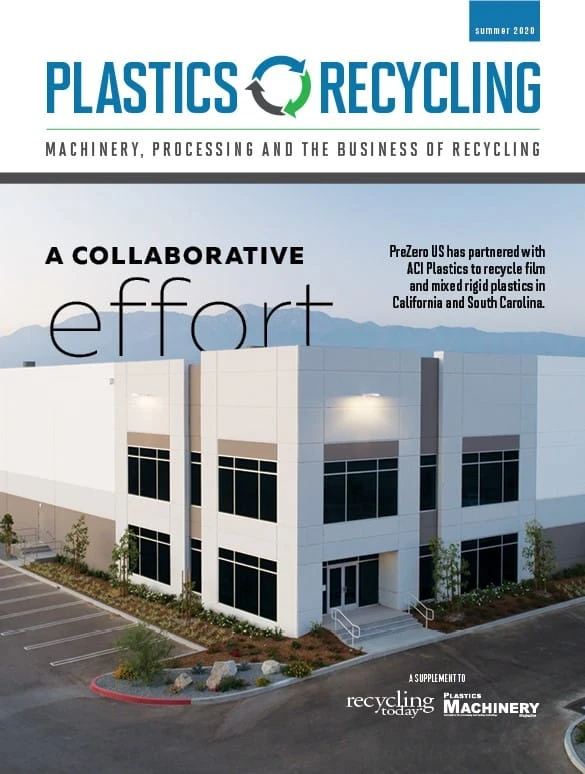
The documentary “Plastic Wars” aired early this spring on the Public Broadcasting System. The project was produced by “Frontline” in partnership with National Public Radio and the Investigative Reporting Workshop at the School of Communication at American University.
According to the documentary, which interviewed some former executives from the plastics industry, the industry used recycling to sell more plastic, publicly promoting recycling despite privately expressing doubts as to its economic viability.
Tony Radoszewski, president and CEO of the Plastics Industry Association (PLASTICS), issued a statement in response to the documentary. It reads in part:
“Plastics should not end up as litter in the ocean or anywhere else. The real challenge is making it easier for everyone to better dispose of plastic products by enhancing our recycling and recovery technologies. …
“The entire plastics industry is playing a leading role in the domestic solution around plastic waste and recycling. Plastic is a sustainable material. Much of what can be recycled, however, is ending up in landfills or the ocean, so we need to invigorate efforts to develop and promote new solutions. Measures like the RECOVER Act—which would designate funds to improve the recycling infrastructure in this country—and the RECYCLE Act plus the Save Our Seas 2.0 Act are the kinds of legislation our industry supports to build a robust recycling system. But recycling is not the only answer to solve this problem. It’s going to take a combination of innovation, education and sustainable materials management to make a lasting difference.”
Innovation has come in the form of advanced recycling technologies that purify segregated recycled plastics into “virgin-like” quality and chemical recycling technologies that can handle commingled plastics streams, breaking the plastics down into monomers to be used in the production of new products.
PLASTICS and other organizations also are looking into infrastructure issues that hamper recycling in the U.S. and developing countries.
The Alliance to End Plastic Waste, which includes nearly 50 companies from across the plastics value chain, has pledged $1.5 billion to develop solutions to prevent plastics from leaking into the environment and to recover and create value from end-of-life plastics. The nonprofit says, “We need to unite industry, governments and intergovernmental and nongovernmental organizations to develop and invest in projects that harness their collective resources and technical expertise.”
The subject of this issue’s cover story, PreZero US, has embraced the concept of collaboration when it comes to plastics recovery and recycling.
How is your company working collaboratively to improve plastic recycling? The public needs to see what is possible through collaboration if the plastics industry is going to rise above the perception that it only pays lip service to recycling.
Get curated news on YOUR industry.
Enter your email to receive our newsletters.

Explore the Summer 2020 Plastics Recycling Issue
Check out more from this issue and find your next story to read.
Latest from Recycling Today
- Green Cubes unveils forklift battery line
- Rebar association points to trade turmoil
- LumiCup offers single-use plastic alternative
- European project yields recycled-content ABS
- ICM to host colocated events in Shanghai
- Astera runs into NIMBY concerns in Colorado
- ReMA opposes European efforts seeking export restrictions for recyclables
- Fresh Perspective: Raj Bagaria






